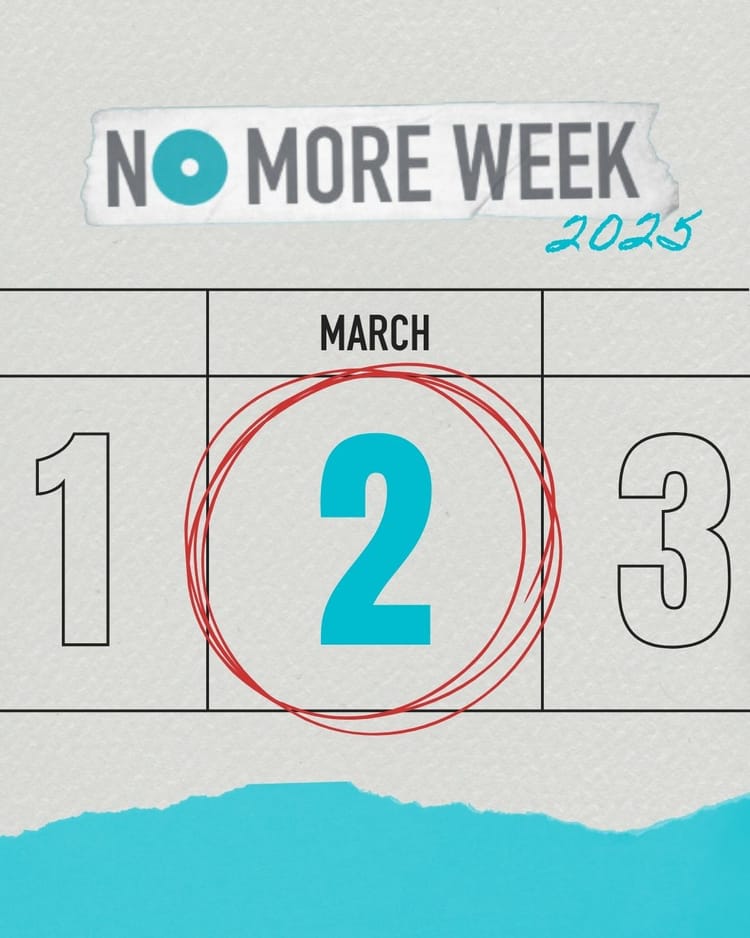VIDEO: A Man’s Responsibility to Combat Rape Culture

He’s been called part Cormac McCarthy, part Woody Guthrie, and part Public Enemy. Minneapolis hip-hop activist Kyle “Guante” Tran Myhre tackles rape culture in his poem “Action.” Listen to his words and ask yourself: Why is it so tempting to stay silent? What obligation does each of us have to speak up? How can male friends open up to one another, support one another, and talk about uncomfortable topics without embarrassment or fear?
Here’s the story behind Guante’s words, as told to NO MORE.
What compelled you to write this piece? Was it personal?
It’s not a true story. Sometimes it’s weird to admit that about a poem, but for this one, I like to be up front about it. I think it’s important that we are able to engage with these issues even when we don’t have a personal connection to them. In the end, we’re all affected by this, even if it’s not an explicit connection, even if we don’t know it, even if there isn’t that “it could be your daughter/sister/mother” stuff attached.
I wrote this piece to dramatize my own struggle with speaking out. The repetition of “part of me” is a play on words—the two characters could definitely represent different elements of one individual. The whole piece is about problematizing that “good people/bad people” binary and shining a light on the overall culture.
How would you describe male friendship?
I don’t know if I could, partly because I think “male” is an intersectional identity, so that question has a ton of other variables in it. For me, personally, friendship has generally been a more unspoken kind of thing. You might love someone, be down to sacrifice for them, be down to support them, et cetera, but you may not necessarily state that explicitly. There’s a stoicism both in the face of adversity and in the face of great love. Maybe a running theme here is “unspoken,” which can relate to both positive things and, like in the poem, very negative things, too.
Like Howard Zinn said, “You can’t be neutral on a moving train.”
What does male silence cause, what does it stop, and what does it perpetuate?
Like Howard Zinn said, “You can’t be neutral on a moving train.” I do think that there are levels to that statement, however, that it isn’t as simple as “all men need to always speak up all the time.” That can be problematic, too.
What obligation do friends have to speak up? Do they have an obligation, does it depend on the friendship, the situation, and so forth?
I think we have to be conscious of identity and privilege here. One of the issues with bystander intervention stuff is that we don’t all have the same levels of safety when it comes to “speaking up.” I don’t think there is any kind of magic formula for how these interactions go—we speak up when and where we can, based on our own identities, the context of the situation, and the relationships present. It’s important to do something, but that “something” might look different in different situations.
What are taboo topics for men?
I don’t think I have anything to add to that conversation beyond what’s already out there: Men tend (and I say “tend” intentionally, because again, “men” is a very broad identity) not to discuss a great deal of things—personal feelings, things that matter, things that might be uncomfortable. What I’ve found, though, is that these taboos are often very surface-level. So things may not come up in casual conversation, but once they’re present, they’re really not that hard to talk about. I think a lot of men welcome these deeper conversations; the problem is just initiating them.
I think a lot of men welcome these deeper conversations; the problem is just initiating them.
In your opinion, is it practical or attainable for men to have this conversation with one another—and what might make these conversations more possible?
Of course. Sometimes we frame that conversation as a very in-the-moment, “speak up and stop a rape from happening” kind of thing. But it’s also about being proactive and bringing conversations about rape culture and toxic masculinity into spaces where it isn’t already present, even if there isn’t a super specific catalyst for it.
What role can art and poetry play in this dialogue?
Supplementary. I try to be very careful about acknowledging both the power and limitations of art. I think art can frame arguments, make abstract ideas come to life, and create space for people to communicate. And all of that stuff is vital to a movement, particularly a movement around dismantling rape culture. But none of that stuff is enough, on its own. We also need to be organizing: changing policies, changing institutions. It takes an intentional, concerted effort.
Guante is a hip-hop artist, two-time National Poetry Slam champion, activist, and educator based in Minneapolis. Read more of his work on how men can dismantle rape culture here.
To learn more about how men are actively combating sexual assault, visit A Call to Men, Men Can Stop Rape, and 1 in 6. And for more on bystander intervention—and what you can do to prevent sexual assault—visit NO MORE.
Together We Can End Domestic and Sexual Violence






